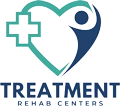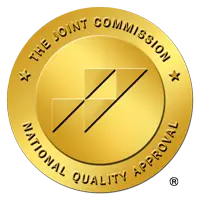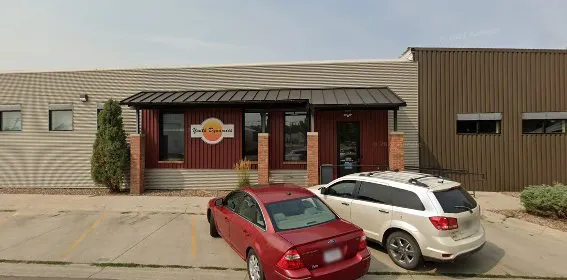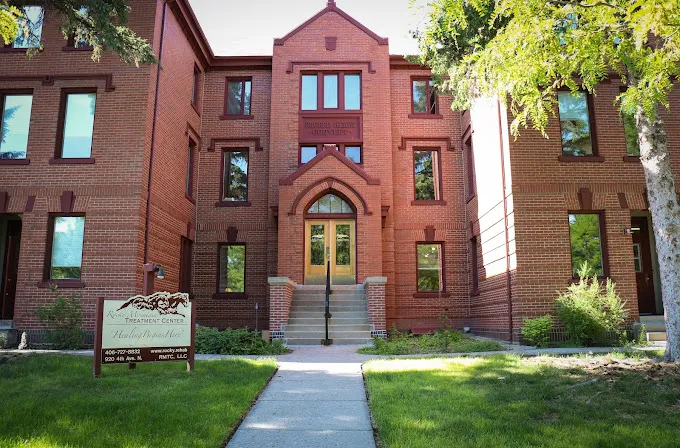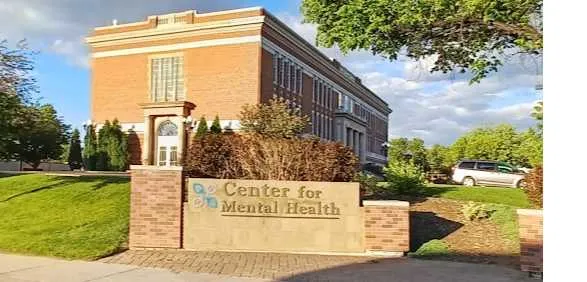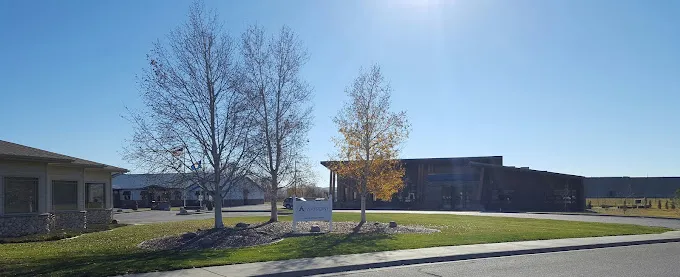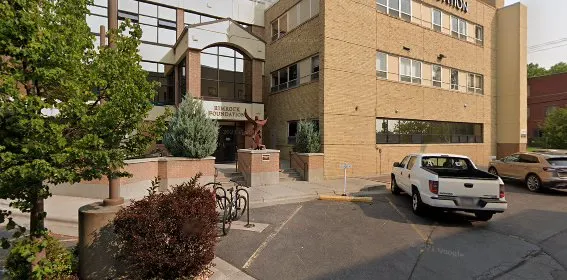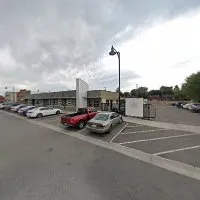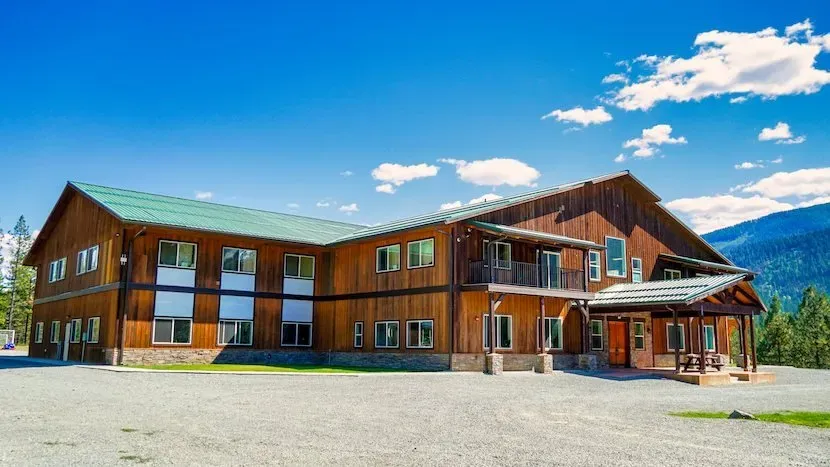The Top Dual Diagnosis Treatment Centers in Montana
Our team has selected the 7 top Montana dual-diagnosis treatment centers based on our vetting process for providers of co-occurring disorder treatment programs.
To review our standards, ‘Our Vetting Process’
Search Nearby Cities
- City Name
Browse Treatment Centers in Montana
At SOBA Recovery Centers, we are dedicated to providing our clients with exceptional care in a welcoming, non-judgmental setting. Our clients and their families have access to some of the best clinicians in the state and an array of luxurious amenities such as a gym, sauna, jacuzzi, and gourmet meals prepared by world-class chefs to enhance their rehab experience.
We are committed to making the journey to recovery as comfortable and effective as possible. We accept most major insurance policies and offer free transportation services for clients within a five-hour radius of our facility. New Brunswick, New Jersey
LEVELS OF CARE
Editorial Note
Youth Dynamics is a non-profit mental health organization that focuses on providing comprehensive care for children and their families who are dealing with behavioral issues or substance use disorders. The facility offers a variety of clinical services designed to address the unique needs of each child and their family, promoting overall wellness and behavioral change.
Key services include case management, parent education, parenting classes, and coping skill development. Therapeutic mentor programs provide additional support, while family therapy, individual therapy, and group therapy ensure that both the child and family members are engaged in the recovery process. Specialized therapies, such as equine-assisted therapy, help to further enhance emotional growth and healing. Additionally, medication management, communication skill development, and transitional living skills help children to better navigate life’s challenges.
Youth Dynamics emphasizes community-based programs to integrate children and families into their local support systems. Each treatment plan is carefully crafted by a clinician, the treatment team, family members, and the child to ensure it is individualized and effective in addressing the specific needs and goals of the family.
WHAT THEY TREAT:
Dual diagnosis substance abuse and anxiety and depression.
Levels of Care
Outpatient, Sober Living, Dual Diagnosis
At Rocky Mountain Treatment Center, clients receive comprehensive care from a diverse team that includes individuals in recovery, nurses, case managers, clinicians, and holistic treatment specialists. This facility emphasizes a dual approach, combining evidence-based therapies with holistic methods to address the client’s physical, emotional, and spiritual well-being.
Available services include 12-step facilitation, equine-assisted therapies, nutritional guidance, and various recreational activities that promote physical and mental health. Family programs and spiritual guidance also play an integral role in the recovery process, ensuring that the client’s support system is involved.
Inpatient programs are offered in 30, 60, or 90-day durations, depending on the needs of the individual. Once completed, clients may transition to partial hospitalization to continue their recovery journey. A key focus at Rocky Mountain Treatment Center is preparing clients for long-term sobriety through individualized aftercare plans. These plans are designed with the treatment team to maintain the skills, coping mechanisms, and recovery strategies learned during the program.
WHAT THEY TREAT:
Dual diagnosis substance abuse and depression, anxiety, trauma, PTSD, personality disorders, and eating disorders.
Levels of Care
Dual Diagnosis, Inpatient Detox, Inpatient Treatment, PHP
IMPORTANT ADDITIONAL DETAILS
Rocky Mountain does not accept Medicaid or Medicare, but they do offer various payment plans and financing options to help their clients.
WHAT THEY TREAT:
Dual diagnosis substance abuse and trauma, depression, anxiety disorders, PTSD, ADD, ADHD, personality disorders, mood disorders, bipolar disorder, psychotic disorders, and OCD.
Levels of Care
Dual Diagnosis, PHP, Sober Living
IMPORTANT ADDITIONAL DETAILS
Though this facility is not accredited, we included it based on its review score and because there is a lack of accredited treatment facilities in Montana offering care for drug and alcohol addiction.
New Day is a nonprofit community organization dedicated to providing age-specific treatment programs for adolescents and adults struggling with behavioral health and addiction issues. The services offered are comprehensive and culturally sensitive, especially catering to Native American traditions and values, alongside evidence-based therapeutic models.
Clients can participate in targeted case management, educational services, experiential education groups, medication management, individual therapy, group therapy, and family-inclusive programs. Specialized services include anger management classes and continuing care planning, which focuses on long-term recovery and support post-treatment.
One of the unique aspects of New Day is the integration of Native American cultural practices, such as the medicine wheel, talking circles, sweat lodge ceremonies, smudging, drum groups, and equine-assisted therapy. These culturally-specific activities offer a holistic approach to healing and are combined with evidence-based therapies like cognitive behavioral therapy (CBT), dialectical behavior therapy (DBT), 12-step programs, and The Matrix Model.
Through this combination of traditional and modern therapies, New Day helps clients develop essential skills such as coping mechanisms, communication abilities, and the foundations for building healthy, supportive relationships, which are key to achieving long-term sobriety and overall wellness.
WHAT THEY TREAT:
Dual diagnosis substance abuse and anxiety and depression.
Levels of Care
Dual Diagnosis, IOP, Outpatient, Partial Hospitalization, Sober Living
IMPORTANT ADDITIONAL DETAILS
New Day is an unaccredited facility, but we have chosen to include them in our list of dual diagnosis outpatient treatment facilities due to their wide variety of programs and reviews left by former clients.
Rimrock is one of the largest adult treatment facilities in Montana, offering comprehensive care for individuals struggling with alcohol and drug addiction, as well as co-occurring mental health disorders. The facility provides various levels of care tailored to meet the unique needs of each client, focusing on treating the physical, emotional, spiritual, and mental aspects of recovery.
Clients at Rimrock can access a broad range of services, including chemical dependency assessments, individual therapy, group therapy, family therapy, grief counseling, EMDR (Eye Movement Desensitization and Reprocessing) for trauma, and trauma-informed care. The facility also incorporates therapeutic interventions aimed at improving mental health alongside addiction recovery. Educational activities, relapse prevention techniques, and aftercare planning are designed to support long-term recovery.
Additional services offered include nutritional guidance, recreational activities, 12-step program facilitation, medication management, spiritual guidance, and refusal skill training. Creative therapies like art therapy are also available to help clients express their emotions and experiences in non-verbal ways.
Each client’s treatment plan is highly individualized and designed by their assigned clinician and addiction specialists to ensure that all aspects of their recovery are addressed. With a combination of evidence-based therapies, holistic treatments, and a strong focus on relapse prevention, Rimrock aims to provide a well-rounded program that supports lasting sobriety and overall wellness.
WHAT THEY TREAT:
Dual diagnosis substance abuse and anxiety, depression, personality disorders, and eating disorders.
Levels of Care
Aftercare, Detox, Dual Diagnosis, Inpatient Detox, Inpatient Treatment, IOP, MAT, PHP, Sober Living
IMPORTANT ADDITIONAL DETAILS
Rimrock also offers a long-term inpatient drug rehab program for mothers with children.
Winds of Change is a nonprofit drug and alcohol treatment facility that offers age-specific, separate programs for adults and adolescents. Their treatment approach is designed to meet the unique needs of both groups.
For adolescents (ages 5-18), the facility provides a range of services aimed at addressing behavioral health challenges and substance use. These services include case management, community services, EMDR (Eye Movement Desensitization and Reprocessing) for trauma, solution-focused therapy, education, goal and skill development, and transitional programs to help young clients adapt to healthier lifestyles and future challenges.
Adults seeking treatment have access to services such as individual therapy, case management, recovery groups, anger management programs, and medication management. These services are designed to help adult clients manage their addiction while addressing any underlying mental health conditions.
Winds of Change accepts Medicaid, making treatment more accessible to those who qualify. Additionally, they offer flexible payment plans to ensure that financial barriers do not prevent clients from receiving the care they need. The facility is committed to providing comprehensive, individualized care to help clients of all ages achieve long-term recovery and personal growth.
WHAT THEY TREAT:
Dual diagnosis substance abuse and anxiety and depression.
Levels of Care
Dual Diagnosis, Outpatient
IMPORTANT ADDITIONAL DETAILS
Despite being an unaccredited facility, Winds of Change was included due to a lack of accredited programs in Montana.
Clearview offers comprehensive and individualized treatment programs specifically designed for girls, addressing their medical, emotional, and mental health needs to promote overall wellness and healing. These programs are designed to help young women not only through therapy but also by integrating academic work to ensure continuity in their education. Each girl will work closely with her assigned clinician in weekly individual therapy sessions, alongside participating in group therapy and family-inclusive programs. Clearview emphasizes the importance of involving loved ones in the recovery process, ensuring that family members can support their child’s healing journey.
The facility uses a variety of evidence-based therapies, including dialectical behavior therapy (DBT), cognitive behavioral therapy (CBT), Eye Movement Desensitization and Reprocessing (EMDR), reality therapy, and trauma-focused therapy. To complement these approaches, Clearview also offers unique therapeutic activities such as miniature horse therapy and art therapy.
Additionally, therapeutic recreation is an important part of the program, allowing the girls to engage in activities such as horseback riding, hiking, rock climbing, sports, and camping, all of which aim to boost physical health and emotional well-being. Neurofeedback is another tool used to help regulate brain function and manage symptoms related to trauma or emotional distress.
By providing a holistic approach that combines therapy, recreation, and academic work, Clearview aims to equip these young women with the skills and resilience they need to apply in real-world situations and to maintain long-term well-being.
WHAT THEY TREAT:
Dual diagnosis substance abuse and eating disorders, depression, anxiety, trauma, and self-harm.
Levels of Care
Dual Diagnosis, Residential Treatment
Have a Treatment Expert Reach Out To You
100% Free and Confidential
Our Grading and Vetting Standards
Each behavioral health provider in this resource has been thoroughly vetted and holds a combination of the following indicators of consistent and effective care:
– SAMHSA listing verification, JCAHO and/or CARF accreditations
– Composite online review score of 3.5/5 stars or better (except when too few reviews is noted)
– Evidence-based behavioral heath practices are reliably employed
Our clinicians and reviewing staff have given letter grades based on the above factors.
